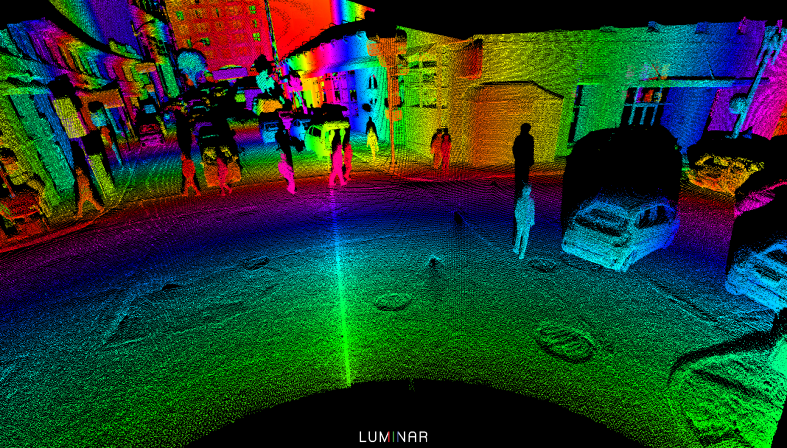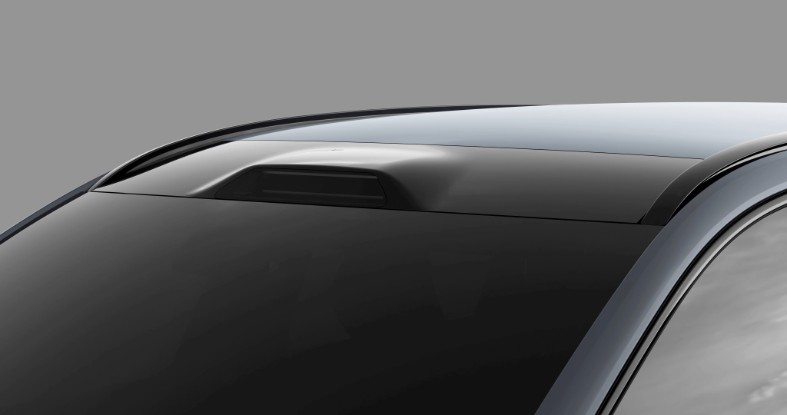Volvo is Partnering with Silicon Valley Startup Luminar on Lidar for its Self-Driving Vehicles
【Summary】Silicon Valley lidar startup Luminar has entered into a partnership with Volvo Cars to supply its lidar perception technology for the automaker’s next-generation self-driving vehicles. Luminar’s partnership with Volvo will support the automaker’s self-driving technology for highway driving called “Highway Pilot.”

Lidar is an important technology for self-driving cars. The demand for advanced lidar has led to a new crop of startups emerging to develop the laser-based perception technology for the auto industry.
One of the most promising of these new lidar startups is Silicon Valley startup Luminar Technologies. Now the company has been chosen by Swedish automaker Volvo Cars to supply its lidar perception technology for the automaker's next-generation self-driving vehicles. Luminar's partnership with Volvo will support the automaker's first fully self-driving technology for highways called "Highway Pilot."
In addition to the Highway Pilot feature, Volvo Cars and Luminar are also exploring LiDAR's role in improving advanced driver assistance systems (ADAS).
Volvo and Luminar's relationship goes back to 2018 when Volvo announced its new Volvo Cars Tech Fund aimed at investing in high-potential technology start-ups in Silicon Valley and around the globe. The goal of the fund was to invest in strategic technology trends and startups that are transforming the automotive industry. The fund's first investment was Luminar.
Volvo also signed an agreement to possibly increase its minority stake in Luminar.
The Swedish automaker said its next-generation SPA 2 modular electric vehicle architecture will come hardware-ready for autonomous driving starting in 2022, with the Luminar's LiDAR integrated into the roof. Eventually, Volvo said that all future SPA2-based cars may come with a LiDAR sensor as standard equipment.
Lidar is an acronym for "light detection and ranging." It's considered an essential sensor for self-driving cars. Lidar bounces millions of laser beams off objects, which are reflected back to provide a 3D, 360 degree representation of the surroundings, including other vehicles, pedestrians and buildings. Lidar essentially creates a temporary, real-time map that autonomous vehicles can use for navigation without requiring internet connectivity.
When lidar combined with other vehicles sensors such as cameras and radar, lidar acts as the "eyes" of an autonomous car, detecting objects on the road ahead.
However, lidar technology is not just for self-driving vehicles. It is an important sensor for the latest advanced driver assist systems, which include safety features such as adaptive cruise control, pedestrian detection, lane keep assist and automatic braking systems.
"Autonomous drive has the potential to be one of the most lifesaving technologies in history, if introduced responsibly and safely," said Henrik Green, chief technology officer at Volvo Cars. "Providing our future cars with the vision they require to make safe decisions is an important step in that direction."
Luminar developed a low-cost lidar that can detect dark objects like a black car in the road up to 250 meters away. The lidar is also small enough to be integrated into the roof or front bumper of a vehicle during production.
To enable Volvo's optional Highway Pilot feature, Luminar's perception technology will be combined with the autonomous driving hardware and software suite, which includes cameras and radar to support fully-autonomous highway driving.

Luminar's lidar will be mounted in the roof of Volvo's vehicles.
Initially, customers wanting the optional autonomous driving features can have their vehicles updated with over-the-air software, the same way that Tesla updates its vehicles. Volvo's Highway Pilot fully-automated driving feature using the Luminar lidar will be activated based on individual geographic locations and conditions for added safety, Volvo said.
"Soon, your Volvo will be able to drive autonomously on highways when the car determines it is safe to do so," said Green. "At that point, your Volvo takes responsibility for the driving and you can relax, take your eyes off the road and your hands off the wheel. Over time, updates over the air will expand the areas in which the car can drive itself. For us, a safe introduction of autonomy is a gradual introduction."
Luminar's CEO Austin Russell is a Silicon Valley wunderkind. He was 17 years old when he founded the company in 2012 with a vision to develop more advanced lidar for autonomous vehicles. He briefly attended Stanford University, but left to accept a coveted Thiel Fellowship. Russell received a $100,000 award from the foundation to focus full time on Luminar and now that work has paid off.
For Luminar, partnering with Volvo Cars represents the company's first delivery of its technology into series production.
"Volvo is recognized as the pioneer of automotive safety, having driven standardization across the industry for the most advanced life-saving technologies," said Russell. "The next era of safety lies within autonomous driving and once again, Volvo has taken the lead with a major industry milestone. We've solved the key cost, performance, and auto-grade challenges to make series production possible, and alongside Volvo are making the technology available to the world."
-


Ford is Testing a New Robotic Charging Station to Assist Drivers of EVs With Disabilities
-


Ford Raises the Prices of the F-150 Lightning Electric Pickup Due to Rising Raw Material Costs
-


The BMW 7-Series to Feature HD Live Maps From HERE Technologies for Hands-Free Highway Driving in North America at Speeds up to 80 MPH
-


AutoX to Use the 'Eyeonic Vision Sensor' from California-based SiLC Technologies for its Robotaxi Fleet in China
-


LG Develops ‘Invisible’ Speaker Sound Technology That Could Revolutionize In-Vehicle Audio
-


Researchers at South Korea’s Chung-Ang University Develop a ‘Meta-Reinforcement’ Machine Learning Algorithm for Traffic Lights to Improve Vehicle Throughput
-


Zeekr’s New 009 Electric Passenger Van is the World’s First EV to Feature CATL’s Advanced ‘Qilin’ Battery With a Range of 510 Miles
-


Redwood Materials is Building an Electric Vehicle Battery Recycling Facility in South Carolina
- BorgWarner Invests $500 Million in Wolfspeed Inc, a Developer of Semiconductors and Silicon Carbide Devices for Electric Vehicles
- China Added 963,000 Electric Vehicle Charging Piles Since January in its Push to Lead the World in EV Sales
- Hyundai and Michelin to Develop Next-Gen Tires for EVs
- Electric Automaker XPeng and Bosch Join the ‘ELISA Project’ to Promote the Use of Linux in Safety-Critical Automotive Applications
- Vietnam-based Electric Vehicle Startup VinFast Ships its First Vehicles to the U.S.
- Automotive Supplier MAHLE Developed a Superior Continuous Torque (SCT) Electric Vehicle Motor That Can Run ‘Indefinitely’
- Michigan-based May Mobility Closes on $111 Million Funding Round, Begins Development on Toyota’s Next-Gen Commercial Autonomous Vehicle Platform
- California Startup Orbis Brakes Debuts its Revolutionary 'Periodic Wave' Brake Line Developed in Collaboration with NASA
- Tesla’s Battery Supplier Panasonic is Working on New EV Battery Technology That Can Boost Range by 20%
- EV Startup VinFast is Offering 3 Years of Free EV Charging and Advanced Driver Assist System for Customers That Reserve a Vehicle Through Sept 30











 About Us
About Us Contact Us
Contact Us Careers
Careers